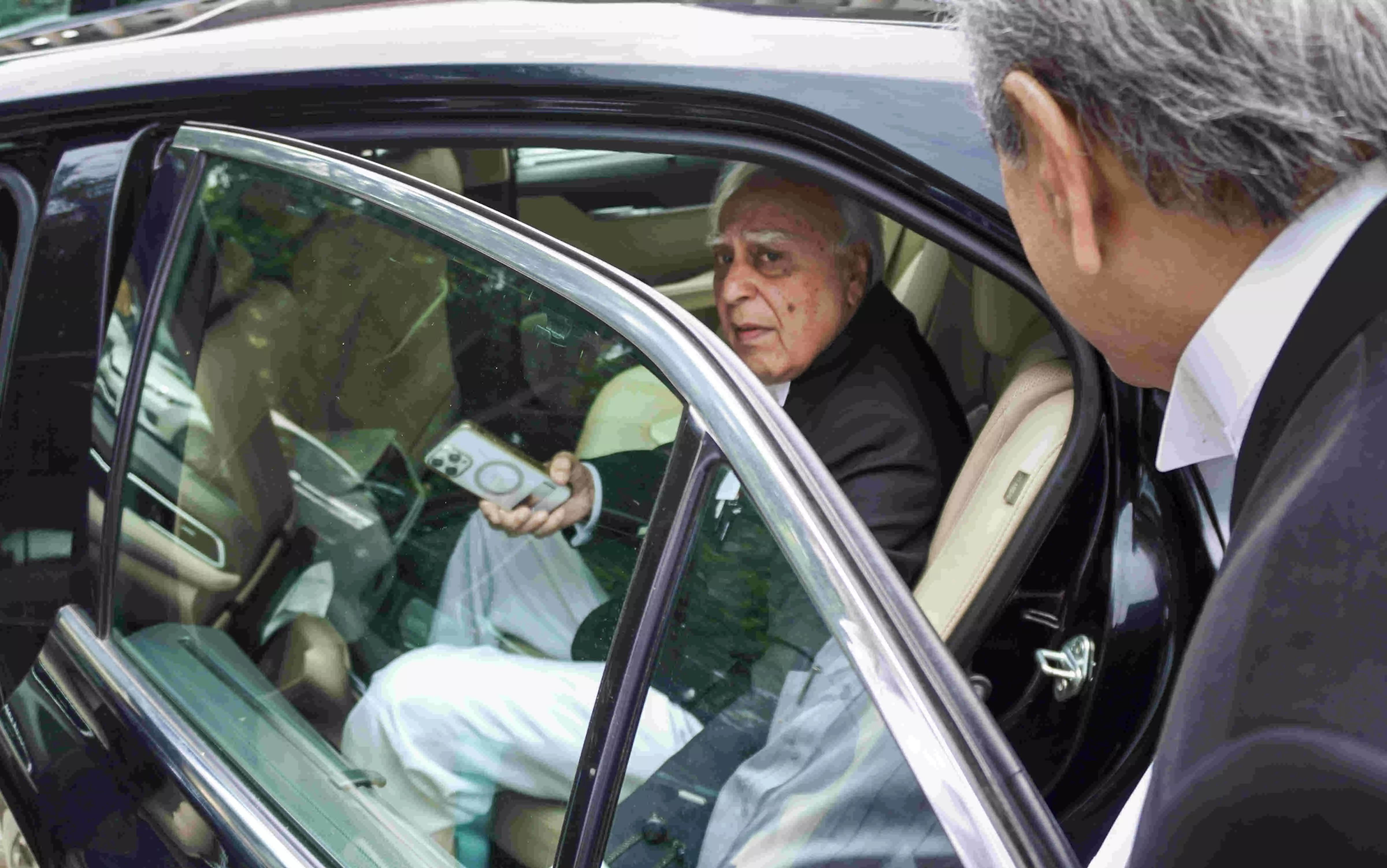'Will approach SC against 'injustice': Sibal on HC rejecting Umar Khalid's bail plea

New Delhi: Days after the Delhi High Court denied bail to Umar Khalid in the Delhi riots case, senior advocate Kapil Sibal on Friday said Article 21 had been violated and "we will approach the Supreme Court" against the "injustice". The Rajya Sabha MP also questioned as to where India's democracy was heading with political parties not raising such issues thinking that this may harm them politically. "We don't want to do the right thing and raise our voice for it. Our lawyers, middle class and society are silent," Sibal said.
In an apparent swipe at former Chief Justice of India DY Chandrachud over his reported remarks that there were at least seven adjournments sought by Khalid's counsel, Sibal said only two adjournments were sought by the defence when the matter was before the Supreme Court. "If the court does not give a verdict for years, are lawyers to be blamed for it. This is the state of affairs of the court. If you don't want to give bail, reject the plea. Why do you have to do 20-30 hearings," Sibal said at a press conference here. "Umar Khalid has been in custody for the last four years, 11 months and 15 days and will continue to be in custody. There have been two appeals -- filed in 2022 and in 2024 -- that were rejected by high courts. One SLP was filed in 2023 but was withdrawn in 2024," he said. Pointing out that the Supreme Court has stated that bail application should be heard as soon as possible and there are several verdicts to that effect, Sibal asked whether that has been applied to the case of Khalid. "The first appeal that came before the high court had 28 hearings in 180 days. In 2024, an appeal was filed and it took 407 days to be rejected," Sibal said.
He said the case against Khalid pertains to a speech he made in Mumbai for which he has been charged under UAPA. The charge is that he gave a speech which implied that there would be violence in future and it is not about killing a person, kidnapping a person or attacking territorial integrity of the country, he said. There is no direct evidence against him, Sibal claimed. Sibal cited several cases in which the UAPA accused has been granted bail. "I want to say with confidence that when they are put under trial almost all of them will be discharged. This conspiracy will be before you," Sibal said. Has there been any action against those leaders who made inflammatory speeches, Sibal asked and said this is the state of the judiciary and the government. "So where should one go and what hope one will have. The political parties also do not raise these issues thinking that this may harm them politically," he said. "Where is our democracy going? We don't want to do the right thing and raise our voice for it. Our lawyers, the middle class and society are silent," he said. "The judges that are sitting in high courts, according to us, this is a violation of Article 21 and this injustice should not be done," he said. "But life depends on hope and we will approach the Supreme Court and expect that we will be heard," Sibal said.
Denying bail to nine persons including Khalid and Sharjeel Imam in the "larger conspiracy" case of February 2020 riots, the Delhi High Court on Tuesday ruled "conspiratorial" violence under the garb of demonstrations or protests by citizens cannot be allowed. The Constitution affords citizens the right to protest and carry out demonstrations or agitations, provided they are orderly, peaceful and without arms and such actions must be within the bounds of law, it added. A bench of Justices Navin Chawla and Shalinder Kaur was dealing with the pleas of Imam, Khalid, Mohd Saleem Khan, Shifa Ur Rehman, Athar Khan, Meeran Haider, Abdul Khalid Saifi, Gulfisha Fatima and Shadab Ahmed. The bail plea of another accused Tasleem Ahmed was decided and rejected by a different bench comprising Justices Subramonium Prasad and Harish Vaidyanathan Shankar. The order of Justice Chawla's bench said the right to participate in peaceful protests and to make speeches in public meetings was protected under Article 19(1)(a), and couldn't be blatantly curtailed. However, the right was stated to be "not absolute" and "subject to reasonable restrictions". "If the exercise of an unfettered right to protest were permitted, it would damage the constitutional framework and impinge upon the law-and-order situation in the country," the order said. The bench went on, "Any conspiratorial violence under the garb of protests or demonstrations by the citizens cannot be permitted. Such actions must be regulated and checked by the state machinery, as they do not fall within the ambit of freedom of speech, expression and association." Dealing with the ground of delay in trial besides the time already spent behind bars to grant bail to the accused, the bench ruled such a ground was not "universally applicable" in all cases.



